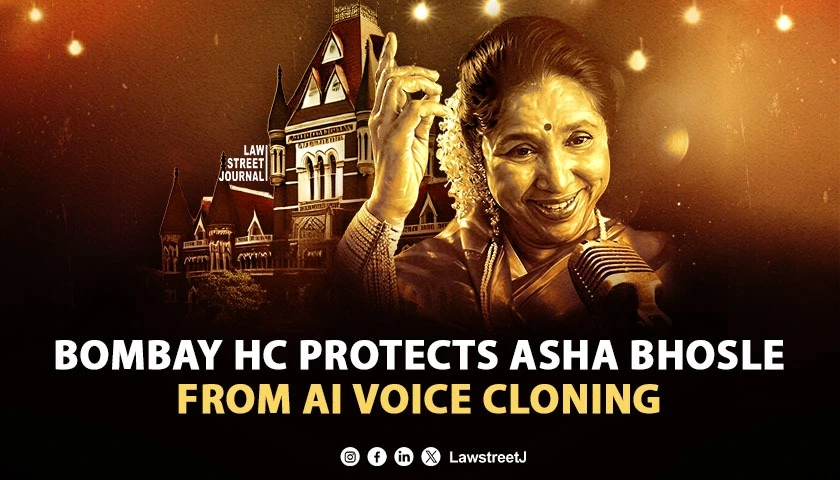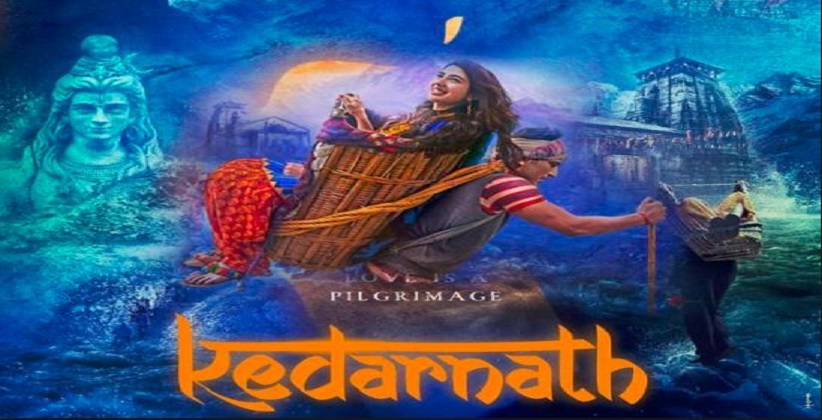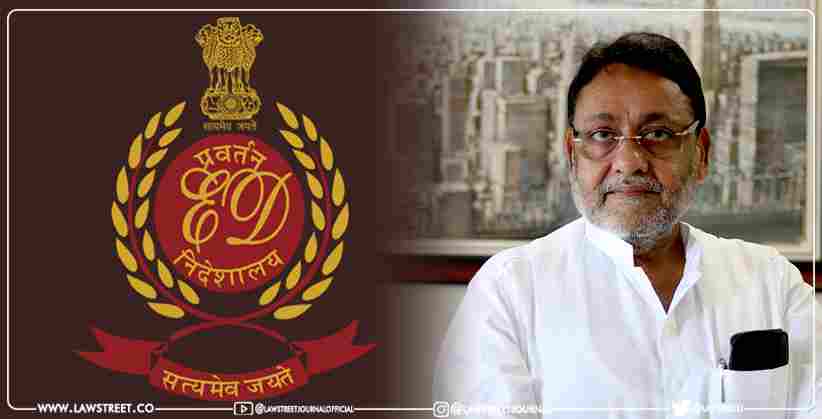Mumbai: The Bombay High Court has ruled that making Artificial Intelligence tools available for converting any voice into that of a celebrity without consent constitutes a violation of personality rights, while granting interim protection to legendary singer Asha Bhosle against unauthorized AI cloning of her voice and the commercial exploitation of her image.
Justice Arif S. Doctor issued comprehensive directions restraining multiple defendants from misusing the veteran artist’s name, voice, photographs, and other attributes of her personality through AI technology and commercial merchandise.
The court addressed Interim Application No. 30382 of 2025 in Commercial IP Suit No. 30262 of 2025 filed by Asha Bhosle against Mayk Inc and several other defendants, including e-commerce platforms and content hosting services.
The plaintiff, described as an eminent personality who has been integral to the Indian music and entertainment industry for over seven decades, sought protection of her personality rights encompassing her name, voice, signature, photographs, images, and caricatures against unauthorized commercial exploitation.
The petition highlighted Asha Bhosle’s extraordinary credentials, including two National Film Awards for Best Female Playback Singer, the Dadasaheb Phalke Award (2000), BBC Lifetime Achievement Award presented by former UK Prime Minister Tony Blair (2002), the International Indian Film Academy Lifetime Achievement Award (2002), and the Padma Vibhushan (2008).
The artist has also received nine Filmfare Awards, including a Lifetime Achievement Award and a record seven Awards for Best Female Playback Singer. She was recognized by the Guinness Book of World Records in 2011 as the “Most Recorded Artist” in music history, has received two Grammy nominations, and was honored with the Maharashtra Bhushan Award in 2021.
The plaintiff’s counsel, Ankit Lohia, demonstrated her massive social media following — 746,000 on Instagram, 880,000 on Facebook, 4.6 million on X (formerly Twitter), and 285,000 on YouTube — establishing the enormous reputation and goodwill accumulated by the artist.
The suit identified multiple categories of infringement. The first defendant, Mayk Inc, operates an AI platform enabling users to convert any voice or sound recording into the plaintiff’s voice using sophisticated algorithms. The platform offers voice-cloning services that allow the public to make any celebrity, including Asha Bhosle, “sing” any song of their choice.
E-commerce platforms Amazon Seller Services and Flipkart Internet were named for displaying, advertising, and selling posters, wallpapers, portraits, and animated caricatures bearing the plaintiff’s image and likeness without authorization.
A sketch artist operating through harrytiwaridotcom was identified as selling T-shirts and hoodies featuring the plaintiff’s image among other celebrities, thereby commercially exploiting her personality rights without permission.
Google LLC was named due to numerous videos uploaded on YouTube containing songs with AI-generated vocals mimicking Asha Bhosle’s voice, with descriptions explicitly stating that the voice was cloned via AI. The plaintiff identified multiple infringing URLs where users demonstrated their ability to clone her voice and create songs for commercial monetization.
The plaintiff’s counsel argued that such technological exploitation facilitates the “unauthorized appropriation and manipulation of a celebrity’s voice, which is a key component of their personal identity and public persona.”
Justice Doctor relied on this court’s recent precedent in Arijit Singh v. Codible Ventures LLP, where it was held that “making AI tools available that enable the conversion of any voice into that of a celebrity without his/her permission constitutes a violation of the celebrity’s personality rights.”
The court also drew upon the Delhi High Court’s decision in Aishwarya Rai Bachchan v. Aishwaryaworlddotcom, which recognized that personality rights entail “the right to control and protect the exploitation of one’s image, name, likeness, or other attributes of an individual’s personality, in addition to the commercial gains that can be derived from the same.”
Justice Doctor observed that unauthorized exploitation has dual impacts: “first, violation of their right to protect their personality attributes from being commercially exploited; and second, violation of their right to privacy, which in turn leads to undermining their right to live with dignity.”
Google LLC’s counsel, Charu Shukla, agreed to take down specific sites and links identified in the plaint but requested two days to take instructions on broader reliefs due to her client being based in the United States.
Finding that the plaintiff had established a prima facie case, Justice Doctor noted that “the fact that the Applicant/Plaintiff is a pre-eminent personality in the field of music is really beyond the realm of doubt.”
The court held that making AI tools available to enable voice conversion without permission “would constitute a violation of the celebrity’s personality rights,” as such tools “facilitate the unauthorized appropriation and manipulation of a celebrity’s voice.”
Justice Doctor observed that the non-appearance of defendants Mayk Inc and the sketch artist “only lends support to the Applicant/Plaintiff’s case that the conduct of Defendants 1, 2, and 5 is purely unauthorized and infringes upon the Applicant/Plaintiff’s personality rights.”
The court granted comprehensive interim relief restraining the defendants from utilizing, exploiting, or violating the plaintiff’s personality rights, publicity rights, or moral rights, including her name, voice, vocal style, mannerisms, photographs, images, signature, and persona, without written consent.
Defendants were ordered to take down, remove, delete, or block access to all infringing content and deliver up for destruction all copies of the impugned materials, including those stored in computer records, servers, cloud storage, and AI systems.
Amazon and Flipkart were directed to remove all listings displaying merchandise bearing the plaintiff’s name, image, or likeness within one week and to establish a mechanism for responding to future notifications of similar infringements.
The platforms were further directed to furnish basic subscriber information, including names, addresses, email IDs, contact numbers, IP logs, and payment details of sellers and uploaders of infringing content, to enable the plaintiff to take appropriate action.
Google LLC was specifically ordered to take down the URLs identified in the plaint showing AI-generated content using the plaintiff’s cloned voice.
The matter has been posted for further hearing on October 13, 2025.
Case Title: Asha Bhosle vs. Mayk Inc & Ors.
Disclaimer: This content is produced and published by LawStreet Journal Media for informational purposes only and does not constitute legal advice. The views expressed are independent of any legal practice of the individuals involved.








![Husband Can Also Claim Alimony/Maintenance From Wife: Bombay High Court Orders Woman To Pay Alimony To Ex-Husband [Read Order]](/secure/uploads/2022/04/lj_2823_Divorce.jpg)






